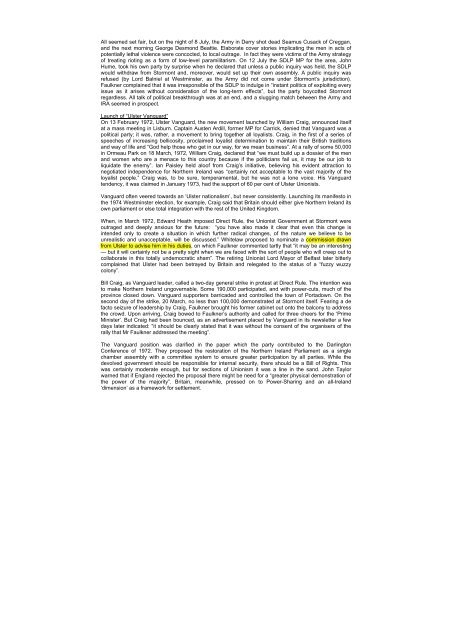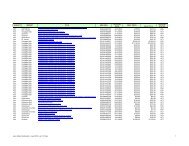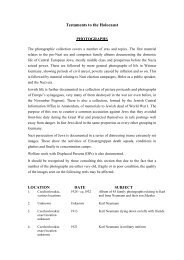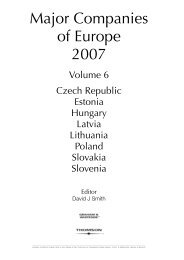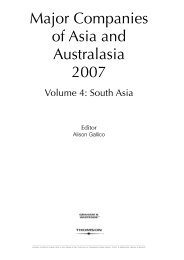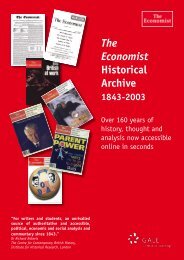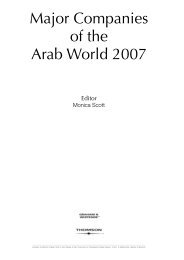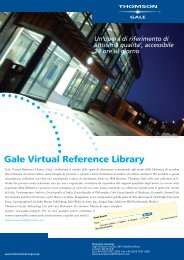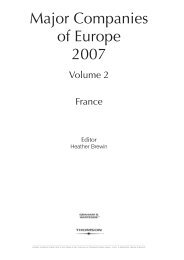The End of Stormont and imposition of direct rule in 1972
The End of Stormont and imposition of direct rule in 1972
The End of Stormont and imposition of direct rule in 1972
Create successful ePaper yourself
Turn your PDF publications into a flip-book with our unique Google optimized e-Paper software.
All seemed set fair, but on the night <strong>of</strong> 8 July, the Army <strong>in</strong> Derry shot dead Seamus Cusack <strong>of</strong> Creggan,<br />
<strong>and</strong> the next morn<strong>in</strong>g George Desmond Beattie. Elaborate cover stories implicat<strong>in</strong>g the men <strong>in</strong> acts <strong>of</strong><br />
potentially lethal violence were concocted, to local outrage. In fact they were victims <strong>of</strong> the Army strategy<br />
<strong>of</strong> treat<strong>in</strong>g riot<strong>in</strong>g as a form <strong>of</strong> low-level paramilitarism. On 12 July the SDLP MP for the area, John<br />
Hume, took his own party by surprise when he declared that unless a public <strong>in</strong>quiry was held, the SDLP<br />
would withdraw from <strong>Stormont</strong> <strong>and</strong>, moreover, would set up their own assembly. A public <strong>in</strong>quiry was<br />
refused (by Lord Balniel at Westm<strong>in</strong>ster, as the Army did not come under <strong>Stormont</strong>’s jurisdiction).<br />
Faulkner compla<strong>in</strong>ed that it was irresponsible <strong>of</strong> the SDLP to <strong>in</strong>dulge <strong>in</strong> “<strong>in</strong>stant politics <strong>of</strong> exploit<strong>in</strong>g every<br />
issue as it arises without consideration <strong>of</strong> the long-term effects”, but the party boycotted <strong>Stormont</strong><br />
regardless. All talk <strong>of</strong> political breakthrough was at an end, <strong>and</strong> a slugg<strong>in</strong>g match between the Army <strong>and</strong><br />
IRA seemed <strong>in</strong> prospect.<br />
Launch <strong>of</strong> “Ulster Vanguard”<br />
On 13 February <strong>1972</strong>, Ulster Vanguard, the new movement launched by William Craig, announced itself<br />
at a mass meet<strong>in</strong>g <strong>in</strong> Lisburn. Capta<strong>in</strong> Austen Ardill, former MP for Carrick, denied that Vanguard was a<br />
political party; it was, rather, a movement to br<strong>in</strong>g together all loyalists. Craig, <strong>in</strong> the first <strong>of</strong> a series <strong>of</strong><br />
speeches <strong>of</strong> <strong>in</strong>creas<strong>in</strong>g bellicosity, proclaimed loyalist determ<strong>in</strong>ation to ma<strong>in</strong>ta<strong>in</strong> their British traditions<br />
<strong>and</strong> way <strong>of</strong> life <strong>and</strong> “God help those who get <strong>in</strong> our way, for we mean bus<strong>in</strong>ess”. At a rally <strong>of</strong> some 50,000<br />
<strong>in</strong> Ormeau Park on 18 March, <strong>1972</strong>, William Craig, declared that “we must build up a dossier <strong>of</strong> the men<br />
<strong>and</strong> women who are a menace to this country because if the politicians fail us, it may be our job to<br />
liquidate the enemy”. Ian Paisley held alo<strong>of</strong> from Craig’s <strong>in</strong>itiative, believ<strong>in</strong>g his evident attraction to<br />
negotiated <strong>in</strong>dependence for Northern Irel<strong>and</strong> was “certa<strong>in</strong>ly not acceptable to the vast majority <strong>of</strong> the<br />
loyalist people.” Craig was, to be sure, temperamental, but he was not a lone voice. His Vanguard<br />
tendency, it was claimed <strong>in</strong> January 1973, had the support <strong>of</strong> 60 per cent <strong>of</strong> Ulster Unionists.<br />
Vanguard <strong>of</strong>ten veered towards an ‘Ulster nationalism’, but never consistently. Launch<strong>in</strong>g its manifesto <strong>in</strong><br />
the 1974 Westm<strong>in</strong>ster election, for example, Craig said that Brita<strong>in</strong> should either give Northern Irel<strong>and</strong> its<br />
own parliament or else total <strong>in</strong>tegration with the rest <strong>of</strong> the United K<strong>in</strong>gdom.<br />
When, <strong>in</strong> March <strong>1972</strong>, Edward Heath imposed Direct Rule, the Unionist Government at <strong>Stormont</strong> were<br />
outraged <strong>and</strong> deeply anxious for the future: “you have also made it clear that even this change is<br />
<strong>in</strong>tended only to create a situation <strong>in</strong> which further radical changes, <strong>of</strong> the nature we believe to be<br />
unrealistic <strong>and</strong> unacceptable, will be discussed.” Whitelaw proposed to nom<strong>in</strong>ate a commission drawn<br />
from Ulster to advise him <strong>in</strong> his duties, on which Faulkner commented tartly that “it may be an <strong>in</strong>terest<strong>in</strong>g<br />
— but it will certa<strong>in</strong>ly not be a pretty sight when we are faced with the sort <strong>of</strong> people who will creep out to<br />
collaborate <strong>in</strong> this totally undemocratic sham”. <strong>The</strong> retir<strong>in</strong>g Unionist Lord Mayor <strong>of</strong> Belfast later bitterly<br />
compla<strong>in</strong>ed that Ulster had been betrayed by Brita<strong>in</strong> <strong>and</strong> relegated to the status <strong>of</strong> a “fuzzy wuzzy<br />
colony”.<br />
Bill Craig, as Vanguard leader, called a two-day general strike <strong>in</strong> protest at Direct Rule. <strong>The</strong> <strong>in</strong>tention was<br />
to make Northern Irel<strong>and</strong> ungovernable. Some 190,000 participated, <strong>and</strong> with power-cuts, much <strong>of</strong> the<br />
prov<strong>in</strong>ce closed down. Vanguard supporters barricaded <strong>and</strong> controlled the town <strong>of</strong> Portadown. On the<br />
second day <strong>of</strong> the strike, 20 March, no less than 100,000 demonstrated at <strong>Stormont</strong> itself. Fear<strong>in</strong>g a de<br />
facto seizure <strong>of</strong> leadership by Craig, Faulkner brought his former cab<strong>in</strong>et out onto the balcony to address<br />
the crowd. Upon arriv<strong>in</strong>g, Craig bowed to Faulkner’s authority <strong>and</strong> called for three cheers for the ‘Prime<br />
M<strong>in</strong>ister’. But Craig had been bounced, as an advertisement placed by Vanguard <strong>in</strong> its newsletter a few<br />
days later <strong>in</strong>dicated: “it should be clearly stated that it was without the consent <strong>of</strong> the organisers <strong>of</strong> the<br />
rally that Mr Faulkner addressed the meet<strong>in</strong>g”.<br />
<strong>The</strong> Vanguard position was clarified <strong>in</strong> the paper which the party contributed to the Darl<strong>in</strong>gton<br />
Conference <strong>of</strong> <strong>1972</strong>. <strong>The</strong>y proposed the restoration <strong>of</strong> the Northern Irel<strong>and</strong> Parliament as a s<strong>in</strong>gle<br />
chamber assembly with a committee system to ensure greater participation by all parties. While the<br />
devolved government should be responsible for <strong>in</strong>ternal security, there should be a Bill <strong>of</strong> Rights. This<br />
was certa<strong>in</strong>ly moderate enough, but for sections <strong>of</strong> Unionism it was a l<strong>in</strong>e <strong>in</strong> the s<strong>and</strong>. John Taylor<br />
warned that if Engl<strong>and</strong> rejected the proposal there might be need for a “greater physical demonstration <strong>of</strong><br />
the power <strong>of</strong> the majority”. Brita<strong>in</strong>, meanwhile, pressed on to Power-Shar<strong>in</strong>g <strong>and</strong> an all-Irel<strong>and</strong><br />
‘dimension’ as a framework for settlement.


